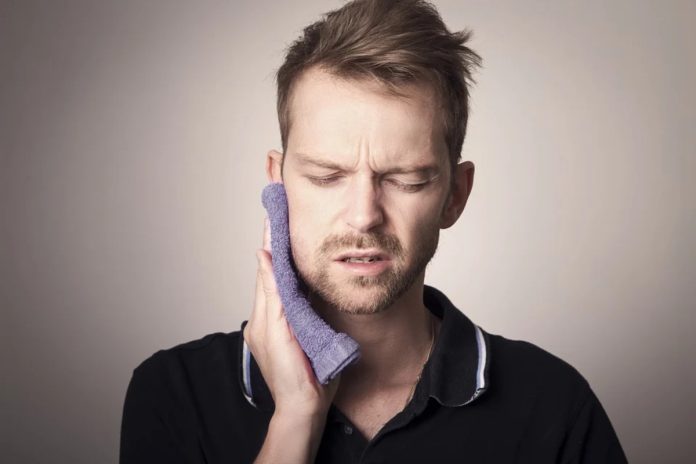Teeth sensitivity is a common dental condition in which there are sharp pains or irritations felt in the teeth when they are exposed to hot, cold, sweet, sour, spicy foods and drinks. However, if you experience this issue it does not mean that you need all of your teeth pulled out! There are many clinic-quality treatments for reducing pain related to sensitive teeth.
Teeth sensitivity is usually caused by enamel wear or cavities. The enamel protects the soft inner part of your teeth (dentin) which can become worn down with time after eating particularly hard or acidic foods. If you have a cavity near the tooth pulp it will leave the nerves underneath vulnerable to hot or cold food causing increased pain sensations. Acidic substances are behind most cases of tooth sensitivity because they dissolve the mineral content of your enamel which then exposes the dentin beneath it.
What can you do about teeth sensitivity?
Visit a dentist
The first and best thing to do for teeth sensitivity is to visit your dentist to discuss the issue. They can examine your mouth and offer a treatment plan that will address what’s causing the problem based on their examination. In some cases, it may be a simple cavity or enamel wear that can be easily fixed! The dentist can provide you with any necessary home remedies such as brushing your teeth more often or flossing daily in order to avoid dental cavities, tartar build-up and enamel wear.
Other times they may prescribe you over-the-counter products containing fluoride which helps strengthen tooth surfaces minimizing the effects of acids on sensitive teeth through remineralization. You could also try using a desensitizing toothpaste containing potassium ions to help block the transmission of stimuli signals to your nerves. If you have a cavity causing your teeth sensitivity, it may need to be treated with a filling.
In extreme cases, if teeth grinding has caused jaw problems and pain, a dentist can recommend a night guard or mouthguard that essentially acts as protective gear for your teeth to prevent enamel damage and sensitive teeth. Nightguards are also used for people who grind their teeth at night which usually occurs due to stress, anxiety, sleep apnea or other factors related to mental health. For more advanced gum disease where roots and bone surrounding them is exposed, a root canal may be required in order to save the tooth so long as there isn’t any decay in the nerve chamber.
Use a desensitizing toothpaste containing potassium ions
Desensitizing toothpaste with potassium ions can act as an over-the-counter remedy to the pain brought on by sensitive teeth. The potassium ions release a numbing effect, blocking stimuli signals so you don’t feel the pain! There are also products like desensitizers and fluoride treatments at your dentist’s office that may be used in tandem with home remedies to minimize the effects of acid dissolution on your teeth.
Consume foods high in vitamin C such as oranges
Vitamin C is known to reduce symptoms of tooth sensitivity because it strengthens the teeth’s ability to fight against acids. Eating foods high in vitamin C like oranges, papaya, strawberries and broccoli are all great options for reducing symptoms of teeth sensitivity. Chewing sugar-free gum with xylitol or stevia can also be effective as saliva produced works as a natural defence against cavity-causing bacteria which may damage your teeth through acid deposition.
Drink green tea
Green tea contains high amounts of fluoride which can help strengthen tooth surfaces. It also has anti-inflammatory properties that work well for reducing symptoms related to sensitive teeth after eating acidic foods or beverages. You can steep a few bags of green tea in hot water and drink throughout the day before meals if you have a severe case of teeth sensitivity!
What else can you do about teeth sensitivity?
Using dental floss once per day is advised since it will help clean out food particles left in your mouth when brushing alone can’t reach. Additionally, always brush your teeth at least twice daily with fluoride toothpaste in order to prevent acid dissolution on unprotected tooth surface areas. Flossing removes bacteria between your gums and teeth which may lead to periodontitis, a bacterial infection that can cause tooth loss if ignored for too long.


















